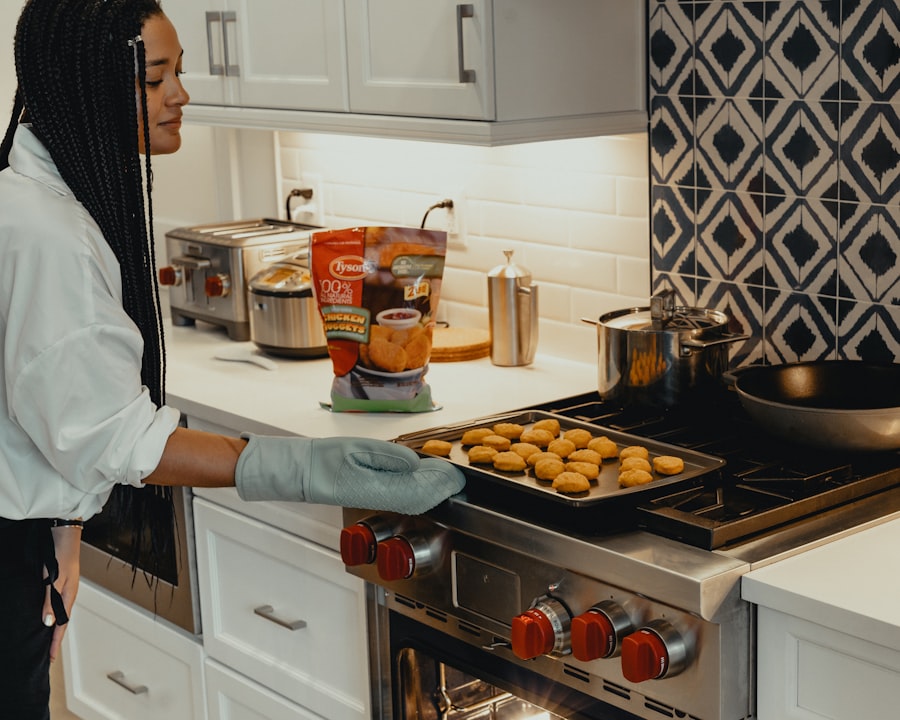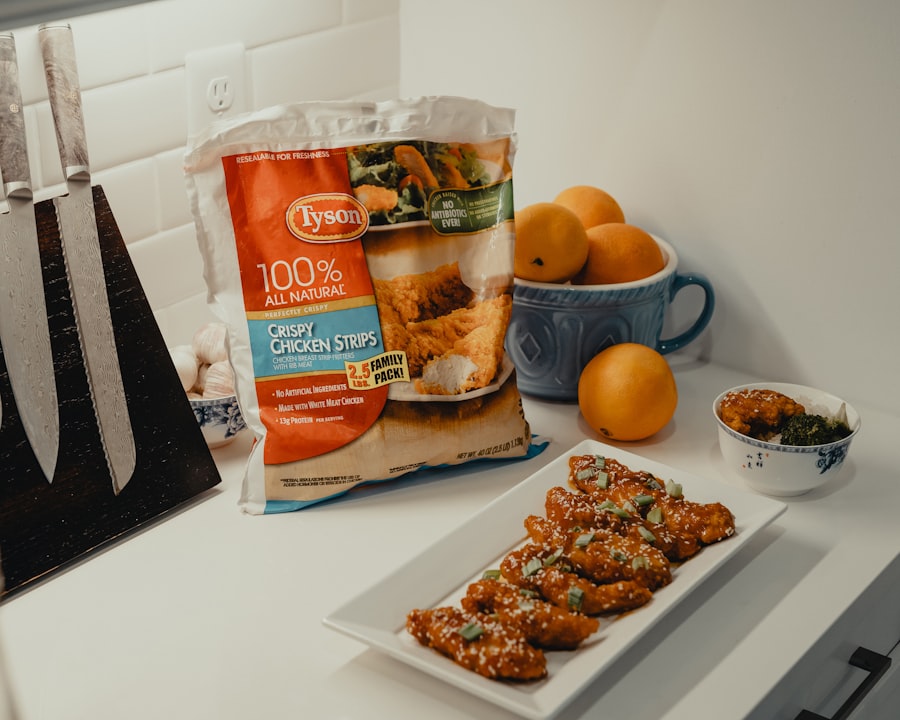Starter feed is essential for young chicks, providing the necessary nutrients for healthy growth and development. This specialized feed contains higher protein levels to support muscle and tissue formation, along with vital vitamins and minerals for overall health and immunity. Many starter feeds are medicated to prevent common poultry diseases and promote well-being.
Selecting the appropriate starter feed is crucial, as different breeds and types of chicks may have varying nutritional needs. It is important to choose a high-quality feed free from contaminants or harmful additives to ensure optimal health for your flock. As chicks grow, they should transition from starter feed to grower feed.
Grower feed is formulated to meet the nutritional requirements of developing chicks, supporting healthy bone and muscle growth. It typically contains lower protein levels than starter feed, along with a balanced mix of vitamins and minerals. The transition from starter to grower feed should be gradual to prevent digestive issues.
Begin by mixing small amounts of grower feed into the starter feed, gradually increasing the proportion over one to two weeks until the chicks are fully transitioned. This method allows their digestive systems to adapt to the new feed, minimizing potential problems. Providing appropriate nutrition throughout a chick’s development stages is crucial for their health and future success.
By carefully selecting and transitioning between starter and grower feeds, you can support your chicks’ growth and set them up for a healthy future.
Table of Contents
Key Takeaways
- Starter feed is specially formulated for young chicks and provides essential nutrients for growth and development.
- Transitioning to grower feed should occur around 6-8 weeks of age to support the changing nutritional needs of the growing chicks.
- Monitoring chick growth is important to ensure they are developing at a healthy rate and may indicate if adjustments to their feed are needed.
- Evaluating nutritional needs involves considering factors such as protein, vitamins, and minerals to support optimal chick growth and health.
- Environmental factors like temperature, humidity, and space should be considered when determining the best feed for chicks.
- Consulting with a poultry expert can provide valuable insights and guidance on the best feeding practices for your specific flock.
- Conclusion: When chicks are around 8 weeks old and showing signs of increased activity and feather development, it is typically time to switch from starter feed to grower feed.
Monitoring Chick Growth
Tracking Weight Gain
Regularly weighing your chicks is crucial for tracking their growth progress and ensuring they are developing at a healthy rate. This simple yet effective practice helps identify any potential issues early on, allowing you to take prompt action to address them.
Observing Behavior and Appearance
In addition to tracking weight gain, observing your chicks’ behavior and overall appearance provides valuable insights into their health and well-being. Healthy chicks should have bright eyes, clean feathers, and be active and alert. Any signs of lethargy, abnormal behavior, or poor feathering could indicate underlying health issues that need to be addressed.
Ensuring Overall Health and Well-being
Monitoring your chicks’ growth and development goes beyond just tracking weight gain and observing behavior. It’s essential to keep an eye on other aspects of their development, such as their feathering and overall activity levels. By doing so, you can ensure that your chicks are thriving and address any potential issues early on, setting them up for a healthy and happy life.
Evaluating Nutritional Needs

Evaluating the nutritional needs of your growing chicks is essential for ensuring that they are receiving the appropriate diet to support their development. As chicks continue to grow, their nutritional requirements will change, making it important to regularly assess their dietary needs. Factors such as breed, age, and overall health can all impact a chick’s nutritional needs, so it’s important to take these factors into consideration when evaluating their diet.
One key aspect of evaluating your chicks’ nutritional needs is ensuring that they are receiving the appropriate levels of protein, vitamins, and minerals. Protein is essential for supporting muscle and tissue development, while vitamins and minerals play a crucial role in overall health and immunity. Additionally, it’s important to consider any specific dietary requirements that may be unique to your particular flock.
By regularly evaluating your chicks’ nutritional needs and adjusting their diet as necessary, you can ensure that they are receiving the appropriate nutrients to support their continued growth and development.
Considering Environmental Factors
In addition to providing your chicks with the appropriate feed, it’s important to consider environmental factors that can impact their overall health and well-being. Factors such as temperature, humidity, and ventilation can all play a role in the success of your flock. Maintaining a clean and comfortable living environment for your chicks is essential for supporting their growth and development.
Temperature control is particularly important in the early stages of a chick’s life, as they are unable to regulate their body temperature effectively. Providing a warm and draft-free environment is essential for ensuring their comfort and well-being. Additionally, proper ventilation is important for maintaining air quality and preventing the buildup of harmful gases.
By considering these environmental factors and taking the necessary steps to create a comfortable living environment for your chicks, you can support their overall health and well-being.
Consulting with a Poultry Expert
When it comes to making decisions about your flock’s nutrition and care, consulting with a poultry expert can provide valuable insights and guidance. A poultry expert can offer advice on selecting the appropriate feed for your chicks, as well as provide recommendations for managing their overall health and well-being. Additionally, a poultry expert can help you address any specific concerns or issues that may arise with your flock.
In addition to seeking advice from a poultry expert, it’s also important to stay informed about best practices for raising healthy chicks. There are many resources available, such as books, online forums, and local agricultural extension offices, that can provide valuable information on chick care and nutrition. By staying informed and seeking guidance from knowledgeable sources, you can ensure that you are providing the best possible care for your growing flock.
When to Switch from Starter Feed

Understanding Nutritional Needs
To make informed decisions, it’s essential to understand the nutritional needs of your growing flock. Monitoring their growth and development, as well as considering environmental factors that can impact their overall health, will help you determine the best time to transition from starter feed to grower feed. Consulting with a poultry expert and staying informed about best practices for chick care can also provide valuable insights.
Timing the Transition
The decision to switch from starter feed to grower feed will depend on the specific needs of your flock. As a general guideline, most chicks can be transitioned to grower feed around 8-10 weeks of age, or when they begin to show signs of increased activity and feather development. However, it’s essential to monitor your chicks’ growth and behavior closely to determine the best time for the transition.
Supporting Continued Development
By providing your growing flock with the appropriate nutrition and care, you can support their continued development and set them up for a healthy and successful future. With careful planning and attention to their needs, you can help your chicks thrive and reach their full potential.
If you’re considering starting a chicken coop, you may also be interested in learning about different types of coops. Check out this article on farmhouse chicken coops for some inspiration on creating the perfect home for your feathered friends.
FAQs
What is starter feed for chickens?
Starter feed is a type of feed specifically formulated for young chicks. It contains higher levels of protein and essential nutrients to support their growth and development.
How long should chickens be kept on starter feed?
Chickens should be kept on starter feed for the first 6-8 weeks of their life. This is the critical period when they need the high levels of protein and nutrients to support their rapid growth and development.
What happens if chickens are kept on starter feed for too long?
Keeping chickens on starter feed for too long can lead to excessive weight gain and potential health issues. It is important to transition them to a grower or developer feed after the initial 6-8 week period to ensure they receive the appropriate nutrition for their stage of growth.
Can chickens be transitioned directly from starter feed to layer feed?
It is not recommended to transition chickens directly from starter feed to layer feed. After the initial 6-8 weeks on starter feed, chickens should be transitioned to a grower or developer feed for a period of time before being switched to layer feed, which is formulated for hens producing eggs.
Meet Walter, the feathered-friend fanatic of Florida! Nestled in the sunshine state, Walter struts through life with his feathered companions, clucking his way to happiness. With a coop that’s fancier than a five-star hotel, he’s the Don Juan of the chicken world. When he’s not teaching his hens to do the cha-cha, you’ll find him in a heated debate with his prized rooster, Sir Clucks-a-Lot. Walter’s poultry passion is no yolk; he’s the sunny-side-up guy you never knew you needed in your flock of friends!







